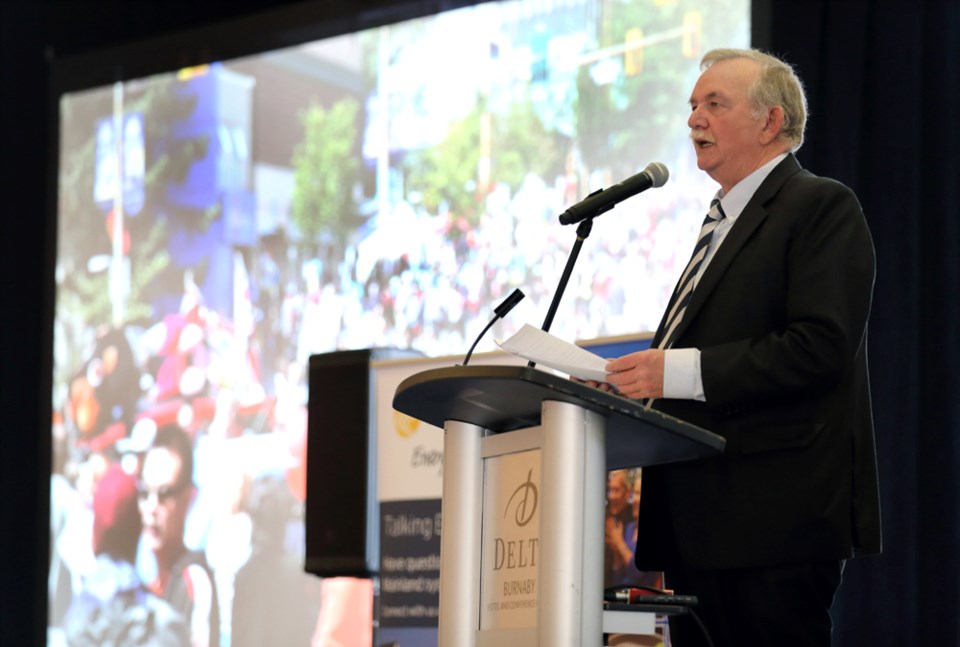Development was again the main focus of Mayor Derek Corrigan’s annual State of the City address at a luncheon hosted by the Burnaby Board of Trade on Wednesday.
Affordable housing seemed to be top of mind for the mayor in his speech to developers, business owners, educational institutes and community organizations. Corrigan opened his speech by discussing the expected population growth for Burnaby – 125,000 people and 60,000 jobs in the next 25 years – and the high cost of housing in Metro Vancouver, devoting nearly half-an-hour to discussing how the city is addressing the need for low-cost housing.
Corrigan says the city is spending reserve funds wisely, despite critics who will say they should be spending them. Most of it comes from cash contributions from developers and casino funds, but how it can be spent is limited, he said.
— (@laurby) April 25, 2018
More than 1,500 new purpose-built market rentals are currently in the rezoning process or under construction, he said, and plans for 1,000 units of non-market housing are in the works.
“I think they want to know what the city is doing, and often you find a focus in the local media being primarily housing issues, and often times that isn’t necessarily expressed what the city is doing, so this is a great opportunity to bring some of those things to the attention of the audience” he told the NOW after his speech.
Some affordable housing projects include a 14-storey non-market housing project in Metrotown, a non-market housing project on city-owned land on Hastings Street, Derby Manor, Cedar Place and Fair Haven.
Trans Mountain and several developers have tables too: Polygon, Beedie, and Shato. pic.twitter.com/ZUB6sMYuDA
— (@laurby) April 25, 2018
Corrigan also described how density bonus funds are used to fund community amenities and create an affordable housing fund. Developers give the city money for projects that exceed allowed density, and that money goes toward creating public amenities.
“It’s unique to be able to get that much money coming into the community as a result of development. I think some people see the negatives of development very clearly: they look at the disruption, they look at the fact that the community is changing, and they don’t always get the information about some of the benefits that come with it,” he told the NOW after the speech. “This is a chance for me to say, so with this new development, which must happen because of the growth, we’re also gaining some benefits for local communities in terms of things that you might not have had if it was only tax dollars paying for it.”


